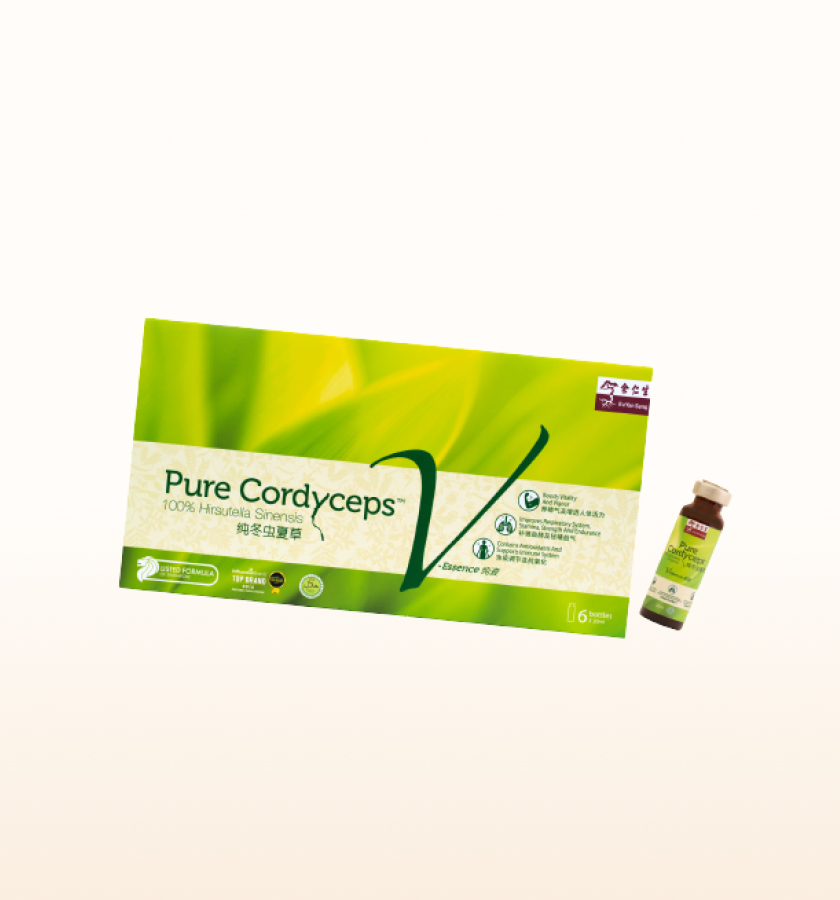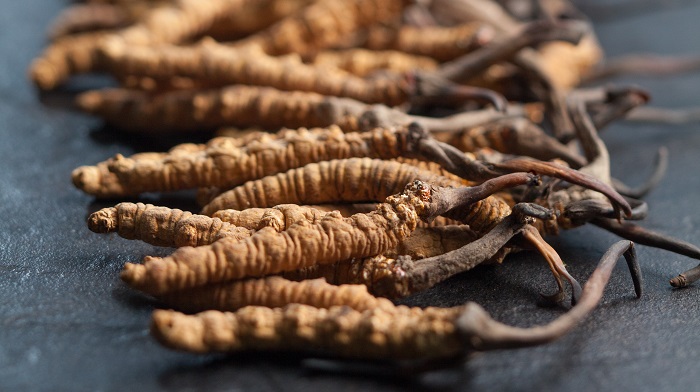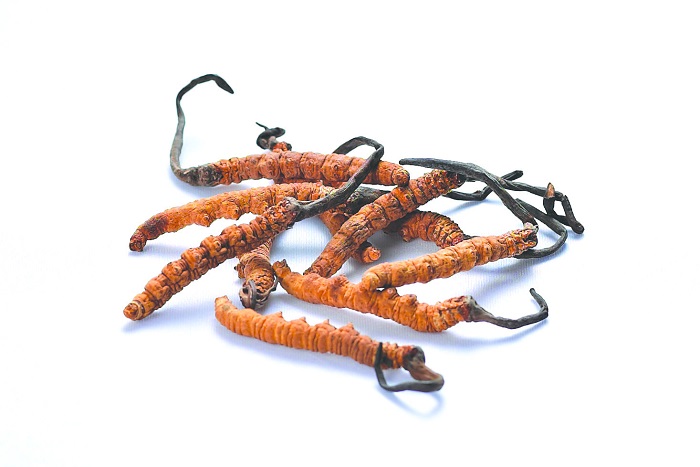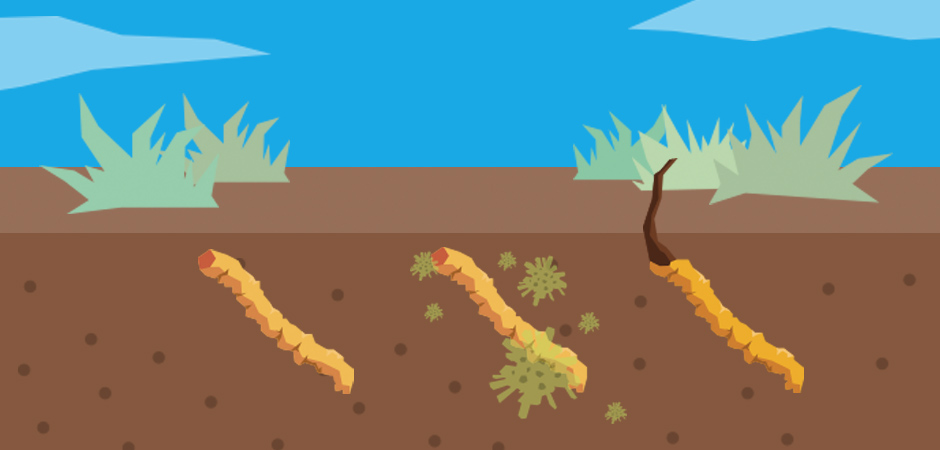Cordyceps Benefits
Cordyceps Benefits to Help Keep You Healthy
Posted on 7 Nov 2022

Cordyceps (Ophiocordyceps sinensis) are parasitic fungi that grow on caterpillars in the Qinghai-Tibet Plateau’s alpine zone in north-western or south-western China. Long used in Traditional Chinese Medicine (TCM), cordyceps have gained popularity because of their benefits and efficacy in preventing various illnesses.
The production of natural Cordyceps is scarce due to the difficulty of combining insects with the right fungi type. It is also challenging to harvest Cordyceps at the right time with manual labor. Because of this, the focus shifted towards the cultivation of this highly sought-after herb using biotechnology.
Currently, there is a wide range of Cordyceps derivatives on the market. You can store it for up to a year if thoroughly dried and tightly sealed in non-porous packaging and placed in a freezer.
Neither plants nor animals, fungi are a group of organisms that mainly grow in soil or plant material. These organisms include yeasts, rusts, smuts, mildews, molds, and mushrooms. Some other popular types of medicinal fungi are reishi, lion’s mane, chaga, and shiitake.
What are Cordyceps Benefits for Your Health?
“From a TCM perspective, Cordyceps is a tonic that you can use to boost kidney function, enhance yang (active energy), improve lung health, manage chronic cough and breathlessness. From a modern pharmacological and nutritional science perspective, it is potentially anti-aging and anti-tumor, effective in managing type 2 diabetes, improving heart health, and helping to reduce inflammation,” explains Senior TCM physician Brandon Yew from Real Health Medical Clinic in Singapore.
Before we deep dive into Cordyceps’ benefits, it’s important to note that you should not regard this TCM herb as a cure-all for different health problems, but as a supplement that can help to improve your overall well-being.
Caution: People with too much yang in the body should refrain from using Cordyceps. Symptoms of too much yang include restlessness, insomnia, frequent thirst, constipation, and fast pulse. It is also best to avoid using Cordyceps at least one week before undergoing an invasive surgical procedure. Several studies have found that the fungi contain blood-thinning bioactive components. In the same way, people with blood disorders or who are on blood-thinning medications should consult both a medical doctor and TCM physician to ascertain their suitability for Cordyceps consumption.
1. Improves physical endurance
 Cordyceps benefits offer you a boost in stamina and physical performance
Cordyceps benefits offer you a boost in stamina and physical performance One of the most known Cordyceps benefits is its ability to increase a person’s tolerance to high-intensity exercises. Cordyceps boost exercise performance in two ways. First, by enhancing blood flow to the muscles and by increasing the production of adenosine triphosphate (ATP). You need this molecule to deliver energy to different parts of the body.
2. Increases resistance to infections and diseases
Studies show that Cordyceps use can help to regulate both your innate and adaptive immunity. Innate immunity refers to your body’s first line of defense against harmful foreign invaders. It is a rapid immune response that occurs with minutes or hours upon encountering an antigen. It has no immunologic memory. This means that it is incapable of memorizing a pathogen should your body be exposed to it in the future.
In contrast, adaptive immunity can be described as the body’s defense mechanism activated after exposure to bacteria, viruses, chemicals, toxins, and pollen. Adaptive immunity uses immunologic memory to learn about a threat and, consequently, develop an immune response. Although, the response of adaptive immunity to threats and infections is much slower than innate immunity.
Furthermore, regular Cordyceps use also has a regulating effect on the gut immune system. It can also improve systemic immune function and reduce your risk of contracting infections or diseases.
3. Potentially reduces the risk of tumor growth
Cordyceps demonstrates anti-tumor activity through the propagation of T-cells, which can aid in the killing of cancer cells. Cordyceps also contains cordycepin, which has anticancer potential. According to an in vitro study – a study performed using components of an organism that has been isolated from its natural surroundings – Cordyceps use could inhibit the growth of lung, gastric, liver, and ovarian cancer cells.
At the same time, a separate in vivo study – a study performed inside a living organism – found that Cordyceps use was able to stop the growth and metastasis of gastric cancer, breast cancer, Lewis lung cancer, and laryngeal cancer.
 Cordyceps can improve brain function and has anti-aging properties that help slow signs of aging.
Cordyceps can improve brain function and has anti-aging properties that help slow signs of aging. 4. Improves brain function
Interestingly, increased production of ATP through Cordyceps use may strengthen the brain by encouraging a better oxygen uptake. This, in turn, promotes increased blood flow to brain cells and fights mental fatigue.
Cordyceps’ benefits for the brain also include improving specific cognitive performance markers, such as learning capacity and memory. Alternatively, Cordyceps may also offer protection agai
5. Supports the kidney and lung systems
TCM practitioners use Cordyceps to tonify or increase the available yang (active energy) throughout the body and enhance the function of the kidneys and lungs. It can potentially support measures taken to prevent chronic kidney failure and improve sexual function caused by a lack of kidney yang energy.
It also facilitates phlegm removal and can alleviate chronic cough ailments and breathlessness caused by weakened lung function.
6. Manage certain health disorders
Cordyceps can help manage several debilitating health problems. For example, coughs, depression, diabetes, erectile dysfunction, high cholesterol, and upper respiratory tract infections. This attributes to the antibacterial, anti-inflammatory, antioxidant, and libido-enhancing effect of Cordyceps.
7. Helps suppress inflammation
Cordyceps use can also help to reduce inflammation in the body. This is evident from the findings of multiple studies, which discovered that extracts of different Cordyceps species could suppress the proteins that may trigger inflammation.
How Do You Take Cordyceps?
Ultimately, the choice is yours when it comes to incorporating Cordyceps as part of your healthy-living regimen.
There are many ways to consume Cordyceps, as they’re often used in cooking plenty of dishes. For starters, you can choose to drink an herbal tonic that contains Cordyceps and chicken essence. Common cooking methods are adding Cordyceps to a chicken soup or porridge, which will help nourish the lungs, strengthen the kidneys, and promote vitality. However, you should wash the Cordyceps first before you cook them.
Another option is to purchase a ready-to-drink herbal tonic containing chicken essence and Cordyceps. Besides these, you can also take it as a tincture or extract, powder, or in capsules.
Tinctures or extracts
A Cordyceps tincture or extract can be made using whole or broken pieces of dried Cordyceps. It only requires minimal preparation. It’s particularly suitable for people who are always on the go or prefer a hassle-free method of consumption.
Powdered
Cordyceps can be ground into a fine powder. You can consume it by mixing it with water, blending it as a smoothie, or brewing it into a tea. This method of consumption is suitable for people who want to stay active and relax with a cup of hot tea at the end of the day.
Capsules
As a tincture or extract, Cordyceps capsules also offer easy, hassle-free consumption. In addition, most of these capsules are produced in manufacturing facilities certified by internationally respected regulators. For example, Therapeutic Good Acts from Australia or Good Manufacturing Practices.
It is worth noting that most capsules found in the market today consist of wild or lab-cultivated strains — CS-2, CS-4, and Hirsutella sinensis — of Cordyceps. Although CS-4 used to be called Cordyceps sinensis and was used to produce mycelial Cordyceps products, it is an incorrect anamorph of Ophiocordyceps sinensis— it belongs to a different genus of fungi, Paecilomyces hepiali.
Only Cordyceps made from the combination of Hirsutella sinensis and Hepialidae can be referred to as Cordyceps sinensis. However, certain countries’ regulatory bodies and suppliers are yet to enforce this on product labeling.
Because of this, the International Code of Nomenclature changed the anamorph name Hirsutella sinensis for algae, fungi, and plants to Ophiocordyceps sinensis. Some countries, including Taiwan, only allow products containing the true strain of Hirsutella sinensis to label their name as “Cordyceps.” Hirsutella sinensis is proven to be 99.645% genetically identical to rare wild Cordyceps according to rDNA sequence analysis. Both Hirsutella sinensis and wild Cordyceps share a high potency of natural bioactive compounds that can help improve vitality and general health.
As with all medicinal herbs, it is always advisable to seek professional guidance if you plan to consume Cordyceps products, especially on a more regular basis. As a potent tonifying herb, people with existing internal damp-heat, such as when the digestion and fluid metabolism are sluggish or feverish should not consume Cordyceps.
Ultimately the choice is yours when it comes to incorporating Cordyceps as part of your healthy living regimen. Given the prevalence of inferior imitation products in the marketplace, ensure that you purchase your Cordyceps products from trusted, well-accredited retailers.
.png)





